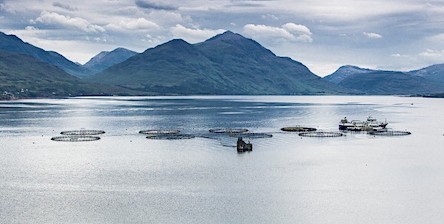International sales of Scottish salmon were valued at £280 million in the first half of 2022, with France accounting for more than half of the total.
This was down by around 8% compared to 2021, across both EU sales and non-EU sales.
Scottish salmon is still the UK’s biggest fresh food export — but the sector is facing continued challenges following Covid and Brexit, the new HMRC figures have shown.
Trade body Salmon Scotland said the international decline has been offset by increased demand at home, with the impact of the pandemic resulting in a shift with some salmon destined for international markets instead sent to UK retailers.
Salmon Scotland said the farm-raised salmon sector delivers 2,500 direct jobs in Scotland, supporting more than 3,600 domestic suppliers, with a total of more than 12,000 jobs dependent on the sector.
It said salmon farmers and producers have faced a number of challenges in recent months, including bad weather at the start of the year affecting harvests, post-Brexit and pandemic-induced labour shortages, cross-Channel delays and a “cumbersome regulation system in Scotland that needs urgent reform and streamlining.”
Salmon Scotland has called on the Scottish and UK governments to take action to support the sector, ensuring it can continue to grow and provide more local jobs in Scotland and more revenue for the UK economy.
This includes:
- A streamlined regulatory system in Scotland along the lines of the Norwegian model.
- Measures to address planning hold-ups for new salmon farms.
- A change to key worker definitions to tackle the post-Brexit labour shortage.
- A solution to cross-Channel delays and avoidance of any trade war with Europe.
Salmon Scotland CEO Tavish Scott said: “There is strong international demand for our unrivalled farm-raised Scottish salmon, making it the UK’s biggest and most important food export.
“These export sales deliver a massive economic benefit for rural and coastal communities in Scotland, supporting thousands of highly-skilled, well-paid jobs, and helping local areas to thrive, while delivering millions for the UK economy.
“And everyone in Scotland can be proud that we produce such a high-quality nutritious product with rigorous environmental and welfare standards and the lowest carbon footprint of any protein-based sector.
“But, like many sectors, we face continued challenges following Covid and Brexit.
“With Scottish Government reform of the cluttered regulatory landscape, and UK Government reform of labour rules and the cross-Channel set-up, we will be able to deliver further sustainable growth to support our most isolated communities.”
